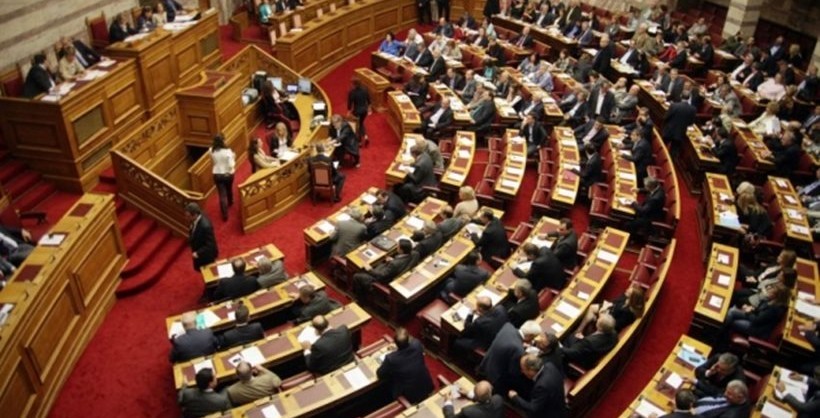“If I do not have the support of my Parliament group, then it will be difficult for me to remain prime minister the next day,” Tsipras said in Parliament on Wednesday towards members of his party’s Parliament group.
His statement came after Minister Panagiotis Lafazanis said he would not approve the memorandum measure, although he backs the government.
Later in the day, according to sources from within Parliament, Tsipras told MPs whom he received in his office in the legislature that if the ruling party records losses of more than 28 of its MPs during the vote — from 149 to under 121 — then he will “commence political developments”.
“One thing we must discuss is whether the dilemma faced by the Greek government was real or fake. If someone believes that the prime minister was deceived by some fake dilemma or a bluff by creditors, then it will be difficult for me to remain as prime minister the next day.
“If someone believes that the threat was real, then he should consider the consequences of no agreement…”
One alternative was heard by MP Costas Lapavitsas, who has generated his share of controversy by advocating for a return to a national currency. The UK-based academic said that the … “Schauble plan had another facet, which was the collapse of this government.”
Greek lawmakers on Wednesday were set to vote on a third bailout program in five years that includes a list of demanding reforms imposed by eurozone creditors in exchange for cash to avert an economic meltdown and to meeting arrears.
Tsipras agreed to reforms in labor relations, pensions, VAT hikes and other proposals that were rejected by voters in a hastily called referendum — by Tsipras — on July 5.
Parliament needs to approve the last-ditch deal struck on Monday before it is ratified by other 18 eurozone parliaments so that Greece can receive 86 billion euros to keep the state’s finances afloat for another three years. France actually beat the Greek Parliament to “to the punch” passing the agreement on Wednesday afternoon.
During an interview on public television on Tuesday, Tsipras accepted responsibility for signing a deal that he did not believe in at a time when Greece was experiencing another recession and with banks closed.
Wednesday’s schedule:
10 a.m. – 12-12.30 p.m. A meeting by the government’s committees for Finance and Social Affairs, Production and Trade and Public Administration
2 p.m. – midnight The Greek Parliament plenary will meet to discuss the reforms. According to Article 109 of the Parliament’s Regulation, talk on the new legislation will run for 10 hours. Sources state that the government majority had wanted the reforms to be passed on Tuesday, however Speaker of the House Zoe Konstantopoulou had rejected this motion so as to give time for deputies to study the reforms before the debate.
Midnight Voting will follow the discussion, due to take place shortly before midnight.
The main opposition conservative New Democracy party along with centrist To Potami (River Party) and socialist PASOK have stated that they will vote for the reforms. The SYRIZA government however is divided on the last-ditch deal. Furthermore, the Independent Greeks (ANEL) – a junior coalition partner – is planning to vote for just the second article of the legislation and will not ratify the entire agreement.
There is speculation as to what position Parliament President Zoe Konstantopoulou will take concerning the legislation. Rumors point to her voting against the deal and then resigning from her position even though she has stated her refusal to resign, however, parliamentary debate began without her presence on the bench.
She took the floor from her seat as a deputy with fiery rhetoric. “It is clear that what is being achieved is via blackmail to the prime minister, government and parliament so that a policy that the prime minister himself – who I respect greatly – but I need to state his stand today, but parliament should not accept or complete the blackmail against the government,” she said, pointing to three weeks of bank stoppage purposely created to push through these reforms.
“There is new data that the government needs to have the clarity and calm to take a decision,” she said, pointing to the IMF document published on Tuesday that recommends debt restructuring. “Some external and internal forces desire for legislation to be passed so we don’t have time to examine the new data.” She pointed to the parliament’s obligation to not allow blackmailing to continue.
































